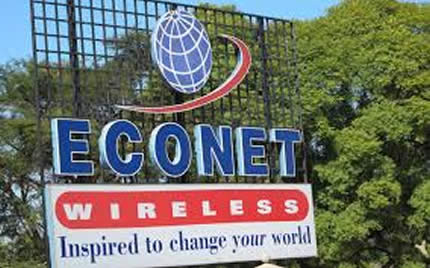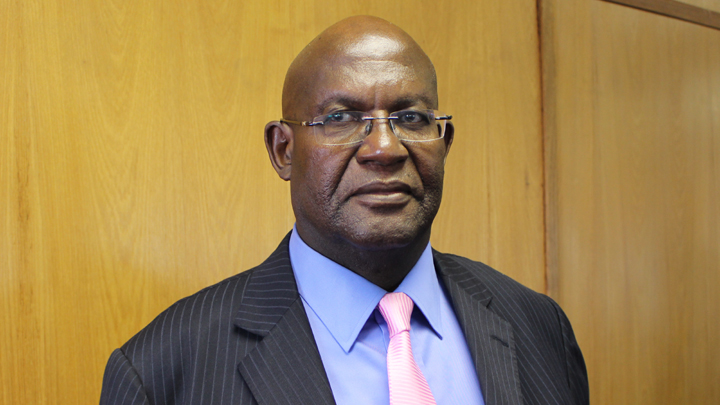ISN’T THIS SLAVERY?

Robson Sharuko Senior Sports Editor—
CONTROVERSIAL club DT Africa United chained a teenage Zimbabwe footballer to a five-year contract, and then inserted a staggering US$300 000 buy-out clause, even though the Division Three team valued that his talent and services were worth a paltry US$120 a month. The deal between the club and Kelvin Bulaji, which is expected to expire at the end of next year, would automatically be renewed for another two years, keeping the player at the club for seven years and the bulk of his professional football life on the same terms, if he doesn’t move to a foreign club now.
The player was liable to a fine of US$150 000, if he involved himself in issues related to the running of the club, a US$100 000 fine if he used his US$120 monthly payout to buy a stake in another club and a US$150 000 penalty if he signed with an agent without the consent of the team.
Bulaji, who was 19 when he signed his five-year deal in May 2010, claims that he was never paid the US$120 that the club promised him every month and has been battling, with minimal success, to free himself from its chains as he plots a future away from the bondage of Darryn T.
His case, which is before the zifa Players’ Status Committee, appears to be just the tip of an iceberg in an underworld where players have fallen prey to abusive clubs and their rights have been trampled upon with very little, if any, protection from the game’s leadership.
Bulaji featured briefly for CAPS United, who paid Darryn T US$3 000 for his short-term loan deal, but ended the year trying his luck in Europe where he has captured the interests of clubs, including Polish club Gornik Zabrze where he stayed towards the end of last year.
The young player’s issue highlights the challenges that face a number of Zimbabwean footballers today who, out of desperation, have been forced to commit their long-term future into the hands of some unscrupulous agents and shadowy clubs, in return of paltry rewards, in a game that lacks the systems to protect them.
Bulaji’s case brings to the fore a number of issues:
Is it right for a club that is in Division Three in this country, which is virtually an amateur league, to be allowed to run a professional set-up where players can be bonded for five years — the maximum term a club can be allowed to tie a player under the fifa regulations except where there are some special circumstances?
If a club values a player at just US$120 a month, money which the player claims in his presentation before the Players Status Committee was barely paid, is it right then for the same club to then insert a buy-out clause, for the same player, of US$300 000?
In a country whose Premiership pays out its winner US$100 000 as the prize money, is it right for a Division Three club to peg a US$300 000 buy-out clause on a 19-year-old player and then make him commit himself to the maximum possible term allowed by fifa, without special circumstances, for a contract?
How many other players in this country, representing the future of our football, find themselves chained to such abusive relationships and their battle to free themselves from the bondage has been a very long and lonely fight?
If a player can satisfactorily present his case that he has been barely paid during the course of his contract, as Bulaji claims he has done in two sessions with the zifa Players Status Committee, why should they be kept bonded to that contract when there is a clear case of a breach of a contract by the club?
Is the Footballers Union of Zimbabwe playing its role and, if so, why haven’t we seen a decrease in the cases of players trying to shake themselves out of abusive relationships with their clubs or agents?
On January 21 this year, Bulaji wrote to the zifa Players’ Status Committee highlighting the frustrations he has gone through trying to free himself from the Darryn T deal.
“I am writing to you for assistance in my contract dispute with DT Africa United.
“In March last year, I wanted to seek a transfer to CAPS United Football Club. I could not reach (an amicable) ending with my club until I had to get assistance from the Players Union,” Bulaji said in his letter..
“The club (DT Africa) suspended me for trying to look for greener pastures.
“I was then transferred to CAPS United on loan basis until December 2013. My problem is I am trying to move from DT Africa and they claim I can’t cancel my contract. I feel I need a contract that will afford me a decent living.
“The current contract gives me an allowance of US$120 per month which was never paid in any instance. I feel I deserve a chance to earn a living out of my talent. I feel I deserve a club that will respect me instead of threatening me on a daily basis.
“Please assist, I need to cancel this agreement for the betterment of my career.”
The agreement entered between Bulaji and DT Africa United managing director, Wieslaw Grabowski, on March 19 2010, provided that:
The player will be contracted to DT Africa United for a period of (5) five years.
The player can sign contracts with other clubs provided he has received consent and endorsement from the managing director of Africa United Club. Failure to do so will result in a penalty of US$300 000, three hundred thousand United States dollars, if signed abroad or equivalent in Zimbabwe dollars if signed locally.
During the course of this agreement Africa United will provide the player all the facilities to play football to achieve a high professional standard.
During the course of this agreement Africa United will provide the player with monthly allowances (of) one hundred twenty dollars.
The Club will (take) care of his welfare, his medical expenses, educational expenses and travel expenses until the player (signs) a professional agreement with another club.
By signing that agreement Bulaji committed himself to abiding by the DT Africa United which include but are not limited to that:
Any involvement of the player in Club matters without permission of the Club will result (in) the penalty against the player of (US$150 000), one hundred fifty thousand dollars.
The player represents that he does not and will not directly, or indirectly, own stock or have any financial interest in the ownership or earnings of the Club or any other professional soccer clubs. Failure to honour this will result (in) additional penalty against the player of (US$100 000), one hundred thousand United States dollars.
Player can also choose his manager or representative provided written endorsement from Africa United otherwise he must pay a penalty of (US$150 000), one hundred fifty thousand United States dollars.
Africa United agreement with the player will be extended automatically for further (2) years if the player will not sign professional definitive agreement with club outside Zimbabwe within two years from the date (of registration) in foreign association.












Comments